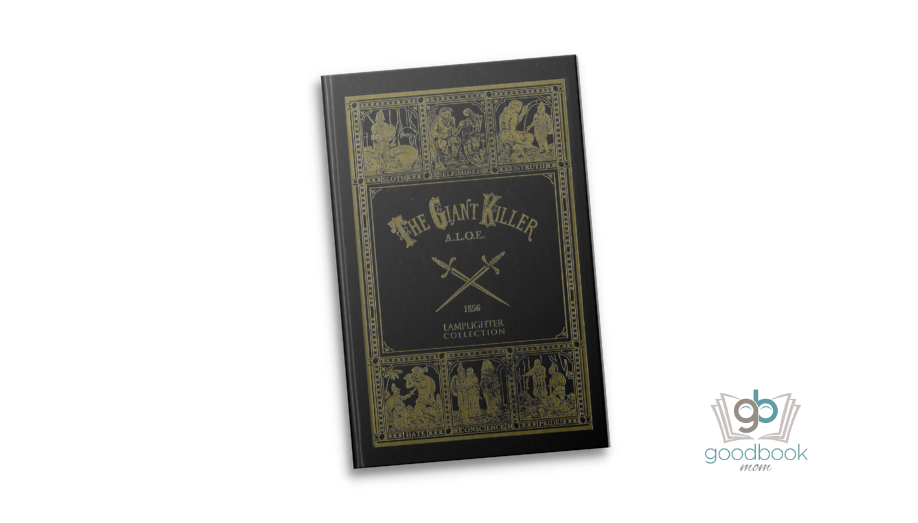
Summary
In this story within a story, we meet Adolphus and Constantine Probyn who come to live with a minister’s family, including three well-behaved children. We learn that the minister’s wife, Mrs. Roby, wants her children to be challenged to see the sin in their hearts that is lurking under the surface. Mrs. Roby often reads an allegorical story to the children titled The Giant Killer in which the brave champion, Fides, must slay foes of all kinds: Giant Sloth, Giant Selfishness, Giant Untruth, Giant Hate, and Giant Pride.
Fides sometimes falters, but in the end triumphs over all of his enemies. The Roby and Probyn children too must all face giants of their own and either choose to succumb or to grasp the “cord of love” to escape their sin.
Reading Level: 10+
Read A Loud Age: 6+
Mom Thoughts
If you are a Pilgrim’s Progress fan, this is a must-read. Originally published in 1856, Lamplighter Books is dedicated to collecting rare literary treasures that draw you and your family closer to God and bringing them back into print. I cannot tell you how much I enjoyed this title. The clear allegorical story is easily understood by children while the story with the Roby and Probyn children will help them to see how to apply it to their lives. This is a textbook example of a living book.
“They had been accustomed to receive kindnesses with pleasure indeed, but without any idea of keeping a thankful remembrance of those to whom they were indebted for them. Pleasures, when once over, had to them left nothing behind; they had not lighted the silver lamp of Memory in their hearts to renew joys and bring the past back again. They had not yet, like Aleck and Bertha, known the deep, sweet feeling of Gratitude, which, beginning with duteous love towards the parents who have watched over our childhood, extends to every friend whose kindness has cheered us, and rises most noble, most holy in its nature, towards the Giver of all that is good.”
While there isn’t a crystal clear Gospel presentation, there are many Biblical principles and lessons running throughout the entire book. For example, loving your enemies is a strong theme and is relatably described in the struggle of a young girl:
“‘You have told me that I dare not ask to be forgiven if I do not forgive, and I cannot- I cannot forgive Constantine Probyn!’
‘Bertha, can a Christian child utter such a word!…my child, the stronger this feeling is in your heart, the more need you have of the assistance of prayer. Have you asked for a spirit of forgiveness?’
Bertha hung down her head in silence.
‘Have you asked that a better heart may be given to those whose faults cause so much pain?’
‘Pray for the Probyns! Oh, I should never have thought of doing that! I despair of their ever changing.'”
I would recommend this as a read-aloud, as that will give you the opportunity to clarify anything that is lost in translation, especially if your children are not used to reading literature written in another time period. There isn’t much vocabulary that will be foreign, probably the dessert “sillabub,” but other than that it’s more sentence structure that will feel different to your child.
Overall, I couldn’t recommend this beautifully written title more. It will likely illuminate the giants in your child’s (and your) life, all through a lovely, memorable story.
This post may contain affiliate links. Please read our disclaimer for more info.
Buy This Book
At A Glance
| Number of Pages | Chapters |
|---|---|
| 194 | 12 |

